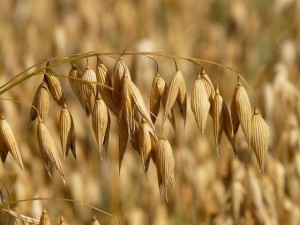It doesn’t hurt to try ![]()
[Dutch phrase of the week]

You can use this expression when you are not sure that your actions will have a positive outcome, but won’t lead to any harm either.
The verb "baten" is typically used in fixed expressions, such as "het mocht niet baten" or "het heeft niet mogen baten". See the Related words.
Examples:
– "Denk je dat dit schoonmaakmiddel zal werken?" – "Ach, baat het niet, dan schaadt het niet!"
("Do you think this cleaning product will do the job?" – "Oh well, it doesn’t hurt to try!")
– "Ik ga alsnog een klacht indienen; baat het niet, dan schaadt het niet!"
("I am still going to file a complaint; it doesn’t hurt to try!")
– "Zullen we nog een voorbeeldzin toevoegen of zal het nu wel duidelijk zijn?" – "Waarom niet? Baat het niet, dan schaadt het niet!"
("Shall we add another example sentence or will it be clear by now?" – "Why not? It won’t hurt!")
Related words:
– Baten: to avail
[verb]
[baatte, gebaat].
This verb is typically used as in the example below:
Example:
– "Ik heb het nog een keer geprobeerd, maar het mocht niet baten / heeft niet mogen baten."
("I tried it once more, but it was of no avail.")
– Baat: benefit, profit, use
[noun]
[de baat,
baten].
The noun "baat" is not used often. You might hear it in an economical context, e.g. "kosten-batenanalyse" ("cost-benefit analysis") or the expression in the example below:
Example:
– "De kost gaat voor de baat uit."
("Expense precedes profit." This is an old saying. You can read it in its original form on a building in Amsterdam (across the water, when you stand on the corner of Oudebrugstraat and Damrak (on your left when you walk on the Damrak in Amsterdam from Central Station to Dam Square)).)
– Schaden: vertaling
[verb]
[schaadde, geschaad].
Example:
– "De slechte kwaliteit van het rapport heeft de reputatie van de auteur geschaad."
("The poor quality of the report damaged the author’s reputation.")
– Schade: damage
[noun]
[de schade,
schades].




 “Haver” translates to “oat(s)”. “Klap” literally translates to “blow”. A “haverklap” was probably something like a handful of straw, which was considered a small, trivial thing. “Om de haverklap” hence meant something like “at the point of a trivial thing”: every moment, at the merest trifle.
“Haver” translates to “oat(s)”. “Klap” literally translates to “blow”. A “haverklap” was probably something like a handful of straw, which was considered a small, trivial thing. “Om de haverklap” hence meant something like “at the point of a trivial thing”: every moment, at the merest trifle.
